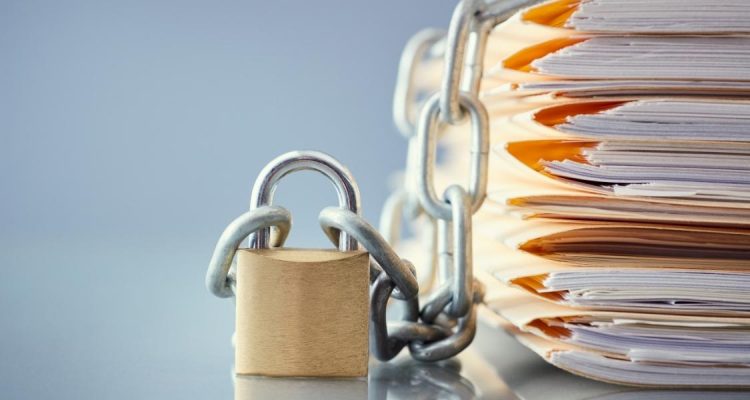What is Banking Secrecy in Simple Words.


The banking system in different countries operates with its own challenges, but fairly well. Such a system has many different processes. For example, what is banking secrecy? It is not just what it is, but also how this concept works.
What is banking secrecy: It is a certain legal regime. It allows the protection of information about customers. Simply put, what is banking secrecy: information about transactions between parties involving the bank is protected from disclosure.
How does banking secrecy work?

To begin with, the banking organization helps carry out certain legal financial transactions. In these transactions, there is a lot of information about all parties involved. Banking secrecy pertains specifically to this information.
This mechanism ensures the confidentiality of financial data and represents an important element of trust between the bank and its customers. In 2024, the issue of banking secrecy remains particularly relevant in Ukraine, given the digitalization of the financial system and the rise of cyber threats. An example can be any financial transaction. This can be a money transfer, a payment, a loan issuance, or an investment. So the most popular transactions.

The banking system has its own factors:
-
The protection of each customer's personal information is guaranteed. This includes passport data, identification number (INN), and contact details (phone, address).
-
The transaction itself is also protected. Information about accounts (balances, movements of funds), transaction history, as well as loans or deposits are affected.
Banking secrecy can also include information about transactions and contracts. For example, the terms of the contract and all objects of that contract. Information about financial plans and investments is also protected.
How does this work in Ukraine?
In Ukraine, banking secrecy also functions. It is regulated by several legislative regulations and laws. Primarily, it is based on the Law of Ukraine 'On Banks and Banking Activities'. The Civil Code also regulates some issues as well as additional laws. All define what and how is protected from disclosure.

According to the law, banks must maintain secrecy regarding their customers and their transactions, except in cases specified by law.
Who can access protected information?
Despite the high level of protection, there are situations in which access to banking secrecy is permitted. This is only possible within the framework of the law and exclusively for certain groups of people:
-
First, these are judicial authorities with a court decision, as well as tax authorities for verifying correct tax payments. The National Anti-Corruption Bureau of Ukraine (NABU) and other law enforcement agencies may also gain access to the information.
-
In certain cases, creditors also gain access to this data. Within the framework of a court proceeding or with the customer's consent.
-
The customer also has access to information. The customer can request information about themselves from the bank.
In all other cases, possession of such information would be illegal.
What happens if banking secrecy is violated?

Disclosure of banking secrecy without a legal basis has serious consequences:
-
The 'simplest' consequence would be administrative responsibility. These are fines for bank employees.
-
A more serious consequence would be criminal responsibility. This can entail imprisonment in cases of intentional disclosure of information.
-
Separately, civil liability can be considered. This is compensation for the customer's losses.
All these penalties are quite serious.
A few words should also be said that mechanisms continuously arise in the banking system that should better protect banking secrecy.
Modern technologies ensure a high level of data protection:
-
Data encryption – all financial transactions are protected by encryption algorithms.
-
Two-factor authentication – access to the system is only possible after identity verification.
-
Transaction monitoring – automated systems detect suspicious transactions.
-
Cyber protection – banks use advanced protection systems against hacker attacks.
Each of these methods aims primarily to protect the customer.
How can you protect your data?
The customer is an important part of the entire chain. They must also ensure that the data is not compromised and not disclosed.

Overall, bank customers also play an important role in protecting their data. How can they do that:
-
Do not share personal data with third parties.
-
Use only verified devices for accessing online banking.
-
Set complex passwords and update them regularly.
-
Do not click on suspicious links from emails and messages.
These are just general measures, but they already reduce the risks of data leaks.
When does banking secrecy not work?
Banking secrecy is a universal concept. However, there are also exceptions. Although the protection of customer information is the foundation of banking secrecy, exceptions exist. For example, banks are required to provide information:
-
At the request of law enforcement agencies within the framework of investigations;
-
To the tax office for income verification;
-
To the financial monitoring authority to combat money laundering.
Such cases are rare, but they do occur.
In summary, banking secrecy is an inseparable part of the financial system that protects customers' personal data and guarantees the confidentiality of their transactions. However, in the modern world and in light of rapid technological developments, it is important to remember that protecting information is the responsibility of both the bank and the customer. By following simple security rules and trusting only proven financial institutions, they can ensure reliable protection of their data.
Banking secrecy functions as a universal protective mechanism; therefore, changes are often introduced into such processes. These allow for improved protection, making it increasingly difficult to violate banking secrecy each year. Additionally, it should be noted that customers often inadvertently violate this secrecy themselves, thus being affected. Hence, preventive measures are always of great importance.
Read also
- What is MoneyGram in simple words
- What is needed for transferring and receiving money via Western Union
- What is Western Union in simple words
- Who is an acquirer in simple terms
- Who is an issuer in simple terms
- Is it possible to send money by mail abroad










